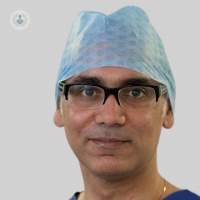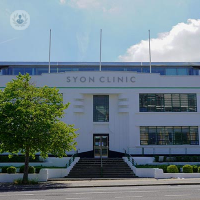What are bladder problems?
Men and women can experience a variety of bladder conditions, with some being more common in one gender than the other. Bladder problems can be described as abnormal bladder function. Some of the most common bladder problems are:
- Urinary tract infections
- Overactive bladder
- Urinary retention
- Incontinence (stress, urge, overflow, total)
- Interstitial cystitis (painful bladder)
- Bladder stones (calculi)
- Bladder cancer
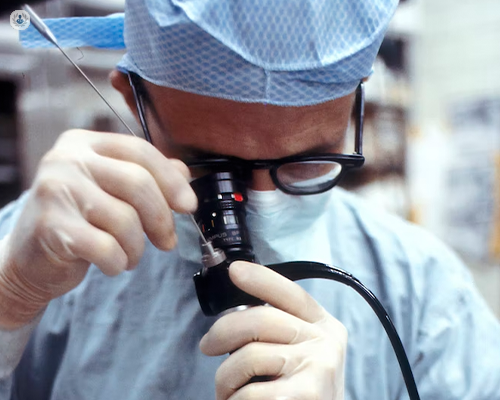
What is the general outlook for bladder problems?
The prognosis will depend on the condition at the root of your symptoms. If you suspect you have a health issue with the bladder, you should contact your GP or a specialist as when left untreated, some bladder conditions can affect overall health and cause further health complications.
What are the main symptoms of bladder problems?
Symptoms will depend on your condition, but bladder problems often involve one or several of the following:
- Frequent urination
- Being unable to hold in urine: leaking during everyday activities or at night
- Pelvic pain
- Nocturnal enuresis (adult bedwetting)
- Blood in urine (haematuria)
- Pain during urination
How are bladder problems diagnosed?
A doctor will initially note down your medical history and perform a physical exam to determine the cause of your symptoms. A physical examination may involve a pelvic exam for women and a prostate examination for men.
Regarding your medical history, they might ask about:
- Your drinking and eating habits
- Bowel habits
- If you’re on any medication
- About pregnancy and childbirth, if you’re a woman
- About your prostate, if you’re a man
To assist with providing your medical history, it can be useful to log the frequency of urination, when you urinate, if you leak, if you get a sudden and strong urge to urinate, and if you drank much liquid before leaking or if you experienced a strong urge to urinate.
They might also order lab tests:
- Urinalysis to check for blood and other substances in urine.
- Urine cytology to examine urine for cancerous or pre-cancerous cells in the urine.
- Urine culture to detect an infection. A sample of urine is placed into a culture dish and any bacteria is given time to grow.
They might order an imaging test such as an x-ray, ultrasound, CT (CAT) or MRI scan.
How are bladder problems treated?
Treatment will depend on your condition. Your specialist will be able to provide you with a personalised treatment plan.
Which type of specialist treats bladder problems
Urologists specialise in the diagnosis and treatment of bladder problems.
05-25-2017 06-07-2023Bladder problems
What are bladder problems?
Men and women can experience a variety of bladder conditions, with some being more common in one gender than the other. Bladder problems can be described as abnormal bladder function. Some of the most common bladder problems are:
- Urinary tract infections
- Overactive bladder
- Urinary retention
- Incontinence (stress, urge, overflow, total)
- Interstitial cystitis (painful bladder)
- Bladder stones (calculi)
- Bladder cancer

What is the general outlook for bladder problems?
The prognosis will depend on the condition at the root of your symptoms. If you suspect you have a health issue with the bladder, you should contact your GP or a specialist as when left untreated, some bladder conditions can affect overall health and cause further health complications.
What are the main symptoms of bladder problems?
Symptoms will depend on your condition, but bladder problems often involve one or several of the following:
- Frequent urination
- Being unable to hold in urine: leaking during everyday activities or at night
- Pelvic pain
- Nocturnal enuresis (adult bedwetting)
- Blood in urine (haematuria)
- Pain during urination
How are bladder problems diagnosed?
A doctor will initially note down your medical history and perform a physical exam to determine the cause of your symptoms. A physical examination may involve a pelvic exam for women and a prostate examination for men.
Regarding your medical history, they might ask about:
- Your drinking and eating habits
- Bowel habits
- If you’re on any medication
- About pregnancy and childbirth, if you’re a woman
- About your prostate, if you’re a man
To assist with providing your medical history, it can be useful to log the frequency of urination, when you urinate, if you leak, if you get a sudden and strong urge to urinate, and if you drank much liquid before leaking or if you experienced a strong urge to urinate.
They might also order lab tests:
- Urinalysis to check for blood and other substances in urine.
- Urine cytology to examine urine for cancerous or pre-cancerous cells in the urine.
- Urine culture to detect an infection. A sample of urine is placed into a culture dish and any bacteria is given time to grow.
They might order an imaging test such as an x-ray, ultrasound, CT (CAT) or MRI scan.
How are bladder problems treated?
Treatment will depend on your condition. Your specialist will be able to provide you with a personalised treatment plan.
Which type of specialist treats bladder problems
Urologists specialise in the diagnosis and treatment of bladder problems.
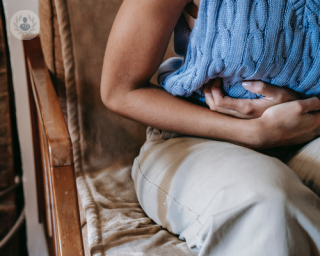

The benefits of cystoscopy and iAluRil installations for bladder pain
By Mr Michael Negus
2024-11-21
Bladder pain, often associated with conditions like interstitial cystitis or chronic cystitis, can significantly impact a patient's quality of life. Two commonly used procedures to diagnose and treat bladder pain are cystoscopy and iAluRil installations. These approaches not only help in identifying the underlying cause of the pain but also offer relief and manage symptoms effectively. Here to tell us all about them is leading consultant gynaecologist Mr Michael Negus. See more
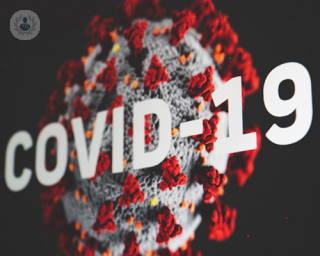

Do COVID-19 and long COVID affect the bladder? Here's what you should know
By Professor Vik Khullar
2024-11-21
To what extent do COVID-19 and long COVID affect the bladder? In our latest article, highly revered and skilled London-based consultant gynaecologist and urogynaecologist, Professor Vik Khullar, reveals how 'COVID bladder' has caused cause for concern throughout the pandemic, outlining the main symptoms patients with this relatively new medical condition have reported. See more


PTNS – a shocking way to bring an overactive bladder under control
By Mr Keng Jin Ng
2024-11-21
Posterior tibial nerve stimulation (PTNS) is a scientific way of stimulating nerves in the ankle through electrical pulses, with the aim of calming the nerves and resetting the nerves back to normal activity. Top urologist Mr Keng Jin Ng explains how this treatment can be used to treat problems with bladder control and pelvic pain. See more


When should you visit a well woman clinic?
By Dr Fakher Gendy
2024-11-21
A well-woman clinic is designed to make it easier for women to access speedy diagnostic and treatment services for a range of common issues. Expert consultant gynaecologist Dr Fakher Gendy tells us what kind of problems someone can have investigated at a well-woman clinic and what to expect from the service. See more
Experts in Bladder problems
-
Mr Sarb Sandhu
UrologyExpert in:
- Bladder cancer
- Prostate
- Vasovasostomy (vasectomy reversal)
- Vasectomy
- Prostate cancer
- Bladder problems
-
Mr Rajesh Kavia
UrologyExpert in:
- Urinary incontinence
- Prostate
- Bladder problems
- Urinary tract infection
- Paediatric urology
- Urinary incontinence in women
-
Mr Sachin Malde
UrologyExpert in:
- Bladder cancer
- Cystitis
- Urinary incontinence
- Bladder problems
- Benign prostate enlargement
- Interstitial cystitis
-
Mr Richard Hindley
UrologyExpert in:
- Prostate cancer
- Benign prostate enlargement
- PSA test
- Green light laser surgery
- Prostate biopsy
- Bladder problems
-
Mr Mark Lynch
UrologyExpert in:
- Prostate cancer
- Prostate biopsy
- Benign prostate enlargement
- Bladder cancer
- Bladder problems
- Kidney stones
- See all

Thornbury Hospital - part of Circle Health Group
Thornbury Hospital - part of Circle Health Group
312 Fulwood Road, Sheffield S10 3BR
No existe teléfono en el centro.
By using the telephone number provided by TOP DOCTORS, you automatically agree to let us use your phone number for statistical and commercial purposes. For further information, read our Privacy Policy
Top Doctors

Syon Clinic - part of Circle Health Group
Syon Clinic - part of Circle Health Group
941 Great West Rd, Brentford TW8 9DU
No existe teléfono en el centro.
By using the telephone number provided by TOP DOCTORS, you automatically agree to let us use your phone number for statistical and commercial purposes. For further information, read our Privacy Policy
Top Doctors

Guy’s and St Thomas’ Private Healthcare
Guy’s and St Thomas’ Private Healthcare
Guy’s Hospital, Great Maze Pond
No existe teléfono en el centro.
By using the telephone number provided by TOP DOCTORS, you automatically agree to let us use your phone number for statistical and commercial purposes. For further information, read our Privacy Policy
Top Doctors
-
Thornbury Hospital - part of Circle Health Group
312 Fulwood Road, Sheffield S10 3BR, SheffieldExpert in:
- Cardiology
- Colorectal surgery
- Endocrinology, Nutrition and Thyroid
- endoscopy
- Fertility
- Otolaryngology
-
Syon Clinic - part of Circle Health Group
941 Great West Rd, Brentford TW8 9DU, West LondonExpert in:
- Allergies nose and ears
- Allergy Dermatitis
- Allergy
- Clinical analysis
- Anxiety
- Digestive
-
Guy’s and St Thomas’ Private Healthcare
Guy’s Hospital, Great Maze Pond, SE1 South Bank LondonExpert in:
- Allergy
- Cardiology
- General Surgery
- Maxillofacial Surgery
- Thoracic Surgery
- Maternity care
- See all
- Most viewed diseases, medical tests, and treatments
- Menopause support
- Pelvic ultrasound
- Complex endometriosis
- Undescended testicle (Cryptorchidism)
- Maternal mental health
- Testicular ultrasound
- Nipple discharge
- Minimal access surgery (keyhole surgery)
- NanoKnife
- Vaginal dryness
